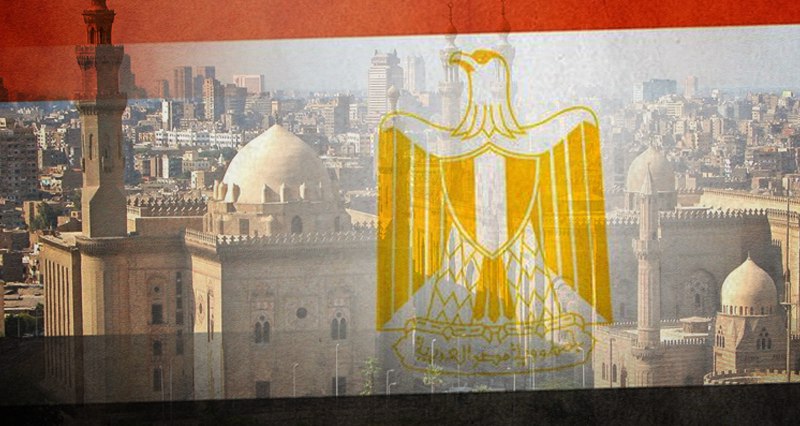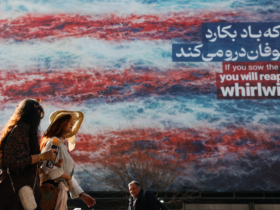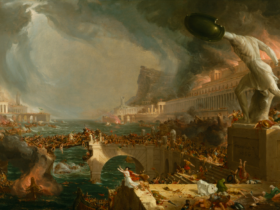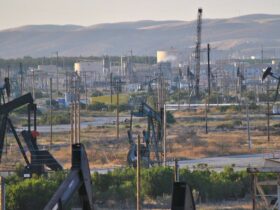By Nardine Ali
Sudan floods send an alert to Cairo
In the wake of Sudan’s floods, Egypt’s President Abdel Fatah Al Sisi has ordered a massive amount of humanitarian aid to be sent to the southern neighbor Sudan in order to alleviate the impact of the floods on hundreds of Sudanese families, the state-run newspaper Al Ahram reported on Tuesday, September 8.
Egypt is sending over 80 tonnes of medical supplies, medicines and food via airlift, Egyptian Chargé d’Affaires to Sudan Nader Zaki told Sudanese news agency SUNA, adding that those are less than half of the aids allocated for the people of Sudan.
On Saturday, September 5th, Sudanese authorities declared a national state of emergency for three months, designating Sudan as a natural disaster zone following the deadly floods that killed over 100 persons and left over 500,000 families displaced.
Egypt has also been affected by the floods, as 70 feddans (72.6 acres) of Beheira governorate in Egypt’s Nile Delta were flooded on Monday, September 7, due to the increase in the Nile River’s water level, Egypt Today reported.
The Egyptian government warned against the floods on August 31st, 2020, anticipating the increase in the torrential rains that raised the water level of the Nile, which had less impact on Egypt due its High Dam built back in the 60s of the last century.
Sudanese experts and politicians denied that the crisis was a result of Ethiopia’s Renaissance Dam, a recent cause of tension between Ethiopia and the Nile basin countries (Egypt and Sudan). Meanwhile, Egypt’s Ministry of Irrigation and Water Resources said on Sunday, September 6, that the High Dam is capable of fending off the floods coming from Sudan.
Al Azhar subordinates Iftaa against all odds
Recent weeks have seen a dispute between Al Azhar, represented in its Grand Imam Ahmed El Tayyeb, and Egypt’s House of Representatives, where the legislative body was scheduled to discuss a draft proposes that Dar Al-Iftaa (House of Fatwas [religious rulings]) to be supervised by the justice ministry instead of the Al Azhar.
The bill, drafted by parliament’s religious committee, was met by Al Azhar’s severe condemnation.
In a letter directed to Parliament’s Speaker, Ali Abdel Aal on August 23, Sheikh Ahmed El Tayyeb asked to attend the session that will discuss the draft; to review the institution’s opinion in the bill, describing it as a “constitutional violation” that will eliminates Al Azhar’s independence, according to Youm7.
“The draft law, if approved, will build authorities “parallel” to Al-Azhar, and undermine its powers and message,” El Tayyeb said in his letter, published on the official Facebook page of Al Azhar.
Following El Tayyeb’s statement, Abdel Aal told the MPs he decided against debating the law, announcing the postponing of the voting session until the religious committee reviews the notes of the legislative department of State Council and prepares a report responding to these notes.
The grand imam lauded the decision, describing it as a victory of the institutional state that respects the constitution and upholds the role of national institutions, including Al Azhar.
“Egypt, under the leadership of President Abdel Fatah Al Sisi, is always keen to preserve Al Azhar institution and to support and assist it to fulfill its mission of spreading moderation and tolerance,” the grand imam said in a statement published on August 24th.
The controversial bill was drafted by Osama Al-Abd, the head of parliament’s religious endowments committee, and other MPs in 2017. It proposes granting Dar Al Iftaa financial, technical and administrative independence, away from Al Azhar’s supervision.
It also regulates the appointment procedures of the grand mufti, head of Dar Al Iftaa, tenure and gives him new authorities.
Most of the Egyptian media’s key players backed Al Azhar in its battle against the parliament, saying that the bill is unconstitutional.
The columnist Mohamed Essmat said in his article published at Shorouk on August 24, that Al Azhar is going through a battle with the executive authority over the past years, due to Al Azhar’s stance of renewing the religious discourse, and redefining extremism and terrorism.
“The draft, which is based on ruling out Al Azhar’s role of issuing fatwas in the country, conflicts with the constitution’s articles regarding Al Azhar’s role,” Essmat said in an article, questioning the parliament’s intentions and its bias to the executive authority over the past years. The executive authority blames Al Azhar for not refining the Islamic heritage from the jurisprudential opinions on which extremist organizations build their atonement of Islamic societies.
Activists on social media have also expressed their solidarity with El Tayyeb in his war on the draft, saying that he represents the last institution that doesn’t submit to the executive authority and enjoys the minimum amount of independence.
Who are the four Arab countries that refrained from condemning Turkey’s interference in the Arab region?
In its session held on Wednesday, September 9, the Arab League (AL) condemned Turkish intervention in the domestic issues of Arab countries, , Almasry Alyoum reported.
In a statement released following the 154th regular session, the AL called on the Turkish party to avoid the provocative acts that threaten the security and stability of the region.
The AL also expressed its opposition to the Turkish military intervention in Libya, Syria and Iraq, in violation to the United Nations’ pacts and resolutions.
The convening ministers agreed to include the Turkish interference in the domestic affairs of Arab countries as a permanent item on the agenda of the League’s Ministerial Council.
Four Arab countries expressed their reservation on the resolution: Qatar, Libya, Somalia and Djibouti.
On the other hand, a Libyan delegation consists of representatives of Fayez Al Sarraj’s government, MPs and leaders of the operation of Volcano Fury arrived in Cairo Wednesday to discuss peaceful solutions of the Libyan crisis and forming a unity government in Libya with the Egyptian authorities, according to the member of Libya’s Supreme Council, Belkassem Qzeit.

















Leave a Reply